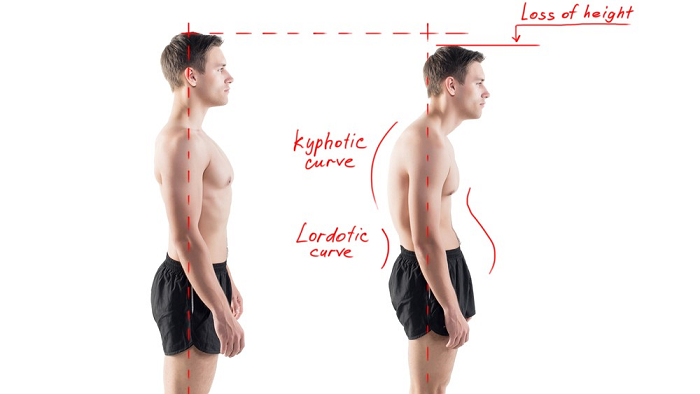Phase 3 — Cultivating the Gentleman Spy Attitude
Lesson 1 — Attitude Basics
LESSON 1: Attitude Basics

Cultivating your attitude starts with the mastering of a few basics.
Your body language impacts everything you do and translates into the overall confidence that affects every single social interaction.
Posture

Your posture is what people first notice about you. Before you make eye contact, before you shake hands, they will notice how you carry yourself: Are you standing upright, confident, commanding respect? Or are you slouching, unconfident, turning people away before they ever get the chance to meet you?
- Head up
- Shoulders back
- Chest out
- Stomach in
Whenever you find yourself slouching, make a point to straighten up, put your shoulders back, head up, take a deep breath, and smile. Many people aren't aware of when they start slouching, so enlist the help of friends and family until this becomes second nature.
Eye Contact

To paraphrase some in the seduction communities, if you're not amazed by the seductive power you wield with just your eyes, you're not making enough eye contact.
- Always make eye contact before a handshake.
- Maintain it through the initial handshake, and while engaging in conversation.
- If you’re trying to get someone’s attention, make eye contact first.
- Picture an inverted triangle with the long side above the other person's eyes, pointing downward, and resting on a point between their nose and mouth (include the mouth, chin, and neck for more intimate, personal contact). Keep your focus in this triangle.
Some experts recommend maintaining eye contact 30–60% of the time, but to truly master it, you will have to aim for 80–90%.
For many men, it can be uncomfortable and intimidating to make eye contact, especially with a beautiful woman or a superior.
Practice by locking eyes with people you pass on the street, store clerks, coworkers, etc. Look long enough to register their eye color, then look away. Work your way up to more sustained eye contact with more people; you'll be amazed at the impact this has on your confidence.
Smile
To increase confidence and respect, and ensure you have people’s attention, establish your presence when entering a room, and then smile.
- A smile makes you more attractive to others. Smiling indicates approachability, interest, excitement, empathy, and happiness.
- Smiling relieves stress and releases endorphins and serotonin. Wearing a smile makes you happier and more confident, even if you weren't before.
- Smiling is contagious. Not only will it make you feel better, but it makes those around you feel good about themselves, creating a positive environment for all involved.
- Smiling is useful. It will open doors and conversations, but don't overdo it.
When you meet somebody, check your posture, make eye contact, and smile. This creates an immediately positive first reaction and sets the tone for the rest of the interaction.
Handshake

Your handshake is the gate to first impressions. A good solid handshake can make the difference between getting a job, winning the contract, or earning more respect, while a poor handshake can do exactly the opposite.
- Web to web. Slide your hand into the other person's so the web between your thumb and index finger touches theirs.
- Squeeze firmly, but don't crush their hand.
- Lasts about 2–5 seconds.
- May be "pumped" (up and down motion) once or twice (generally initiated by the other person).
- Release after the shake, even if the introduction continues.
- Maintain good eye contact throughout (remember the triangle).
Your handshake should be firm and confident.
Watch out for — and don't be — any of these categories:
- The controller — this person maneuvers their hand on top. This signals a dominating and controlling attitude. If you're on the receiving end, the other person probably feels a sense of superiority, or control of the conversation or interaction; keep this in mind as the interaction progresses. If you’ve given this handshake, stop immediately; it will never be received well by either gender, and will most likely turn off every woman you meet.
- The bone crusher — this person tries to crush the other person's hand. Watch the interaction if you're on the receiving end, and never be the one giving it, especially with a woman you’re interested in. Remember: firm, not crushing.
- Take note of the handshake of current US President Donald Trump. A combination of the controller and the bone crusher, you'll notice the crushing grip followed by jerky motions, often attempting to pull the other person towards him. This is not a confident, secure handshake, but one attempting to assert very overt dominance. It is the mark of the extreme narcissist, not something you want to mimic.
- The sandwich — using both hands to sandwich the receiver's hand. This is unprofessional. Reserve it for close friends and relatives.
- The dead fish — cold and wet. Generally, this person has sweaty palms, possibly anxiety induced, or has been holding a cold drink in their right hand. Wiping the hand before introductions will go a long way here.
- The limper — limp fingers, or a completely weak handshake. In the western world, women are especially guilty of this.
It's worth noting that the above etiquette is fairly specific to the English-speaking world and Europe, about 291 million people. In the UK, handshakes tend to be lighter than in America. In the Middle East, a very gentle handshake is the norm, often holding hands for some time afterward. In Asia, it's often a bow with your palms together in front of your chest. Kissing the cheek (some of Europe and Latin America), kissing the woman's hand (Russia), and other variations are also common throughout the world.
Do your research before you travel and pay attention to cultural norms whenever you arrive in a new place.
Touch

Interpersonal touch can make you happier and is a fast route to bonding, comfort, and cooperation, especially in the age of social media and constant phone use where real human contact is becoming more rare.
- Touching a bus driver makes him/her more likely to give you a free ride.
- Touching someone on the arm when asking for a cigarette makes that person more likely to give you one.
- Waitresses who touch customers on the shoulder get bigger tips, regardless of the touched customer’s gender.
- When librarians touched students’ hands as students returned books, the touched students rated the library as significantly more pleasant.
In general, the most socially acceptable areas to touch are the hands, arms, shoulders, and upper back.
For some, reading social cues doesn't come naturally and reaching out to touch someone will feel very awkward at first. Don't worry, you'll get better with practice, and you'll reap the rewards later.
Touch is ten times stronger than talking when it comes to bonding, and used appropriately, it will take you farther, faster, than almost anything when you start pushing your limits with social engineering and seduction.
Confidence

By tweaking your posture, eye contact, smile, and handshake, you'll boost your overall confidence, making visible to others. But you can always go further.
- Walk, move, and act with purpose. Think of your life as an ongoing mission.
- Reject the negative and focus on the positive. Many people focus on problems; top performers focus on opportunities. Every problem should be an opportunity to get better; start looking at it that way.
- Live your passion. If your passion is your work, are you doing everything you can to excel, take on new responsibilities, and be the best you possibly can? If it's one of your hobbies, can you turn that into your work? Whether it's engineering, geopolitics, rock climbing, or scuba diving - do everything you can to constantly push yourself forward and do what you love.
- Embrace discomfort. You won't get better by not exploring beyond your comfort zone. To truly excel, you'll have to push your own limits. Go to the gym instead of watching an hour of television in the evenings. Change up your wardrobe to become more stylish. Learn to swim, learn to fight, shoot, speak a new language. Embrace discomfort and work hard to excel.
Friends, experts, and the media constantly say "just be yourself."
Stop.
Don't "just be yourself." Be the best version of yourself.
Work towards enhancing your strengths and removing weaknesses.
If you're shy, make it a point to get out of your comfort zone and go meet people.
If you're weak, get strong.
If you're fat, get in shape.
Don't let "being yourself" get in the way of being the best you can be.
Self-Control

"Cool under fire."
"Calm under duress."
Living like a gentleman spy means always keeping your composure.
- Never allow your emotions to get in the way of your actions. Don’t jump to conclusions or simply react. Take a step back. Pause. Think. Then act. Never let a compromised emotional state lead you into doing something stupid.
- Don't take things personally. Events happen for countless reasons. From business deals falling through to people treating each other horribly, this doesn't necessarily reflect on you personally. Even when you're rejected from a job or by a woman, take these as learning experiences and move on.
- Respond decisively. Yes or no, right or left, go out or stay home? To live like 007, make sure you err on the side of more adventure, not less. Make a decision and go for it.
- Take responsibility. Understand that whether the outcome is good or bad, it is your fault. From a business deal falling through, to a cheating spouse — you are almost certainly partly responsible. Learn to hold yourself accountable, even if nobody else does. Analyze what went right, what went wrong, and how you can do better for the next time.
- Focus on solutions, not problems. Problems don't matter, only solutions. If it's a problem you can fix, start fixing it. The only problems you cannot fix are death and taxes. If it's an issue that's beyond your control, let it go. Don’t direct your attention towards problems, in particular, those you have no control over. This promotes a negative attitude, potentially leading to poor results, all while taking valuable focus and attention from positive solutions that you can benefit in other areas.
PROGRAM
DOWNLOADS
 Body Language Checklist
Body Language ChecklistDon't let poor posture, a bad handshake, or lack of eye contact ruin an otherwise great impression. Print this out and put it next to your front door, by your desk, in your car — anywhere that will help you remember to keep your body language in top shape.
In the next lesson...
Develop your situational awareness. Stay on your toes, know what's going on around you, and be prepared to act.
